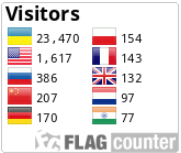ASSESSING COMPETENCY-BASED FRAMEWORK FOR LINGUIST TRAINING IN THE UK: BENEFITS FOR UKRAINE
DOI:
https://doi.org/10.28925/2617-5266/2024.94Keywords:
linguistics, competency-based approach, competency, competence, the UKAbstract
This article explores the evolution of competency-based education in the UK, particularly its implications for professional training of linguists. It begins by highlighting the necessity of enhancing students’ cognitive abilities to foster engagement in shaping their educational and social environments. The article examines the shift from traditional academic evaluations to competency assessments promoted by the Bologna Process, emphasizing the need for interdisciplinary standards in education. It provides a historical overview of the UK’s competency-based approach, tracing its origins in the 1980s and the development of National Vocational Qualifications (NVQs) and national occupational standards. These frameworks, established through stakeholder collaboration, ensure that graduates possess the necessary competencies for their professional roles. The article further discusses the integration of digital skills and adaptability into competency frameworks, reflecting the demands of a rapidly changing labour market. By analysing the UK experience, this study offers insights into enhancing the training of future linguists in Ukraine, aligning educational outcomes with real-world demands while maintaining high standards of professional competency.
Downloads
References
Avis, J. (2017). Beyond competence, thinking through the changes: Economy, work and neo-liberalism. In M. Mulder (Ed.), Competence-based Vocational and Professional Education: Bridging the Worlds of Work and Education (pp. 183–202). Springer International Publishing. http://eprints.hud.ac.uk/30940/
Bourn, D. (2018). Understanding global skills for 21st century professions. Springer International Publishing. https://www.google.com.ua/books/edition/Understanding_Global_Skills_for_21st_Cen/0s10DwAAQBAJ?hl=en&gbpv=0
Brock, C. (2015). Education in the United Kingdom: A regional overview. In C. Brock (Ed.), Education in the United Kingdom (pp. 1–6). Bloomsbury Publishing. https://www.google.com.ua/books/edition/Education_in_the_United_Kingdom/TSCdBQAAQBAJ?hl=en&gbpv=0
Cheetham, G., & Chivers, G. (1996). Towards a holistic model of professional competence. Journal of European Industrial Training, 20(5), 20–30. https://doi.org/10.1108/03090599610119692
Dearing, R. (1997). Higher education in the learning society. The National Committee of Enquiry into Higher Education. http://www.educationengland.org.uk/documents/dearing1997/dearing1997.html
Department of Employment. (1981). White Paper: A New Training Initiative: A programme for action. Her Majesty’s Stationery Office. https://www.education-uk.org/documents/official-papers/1981-wp-new-training-initiative.html
Goria, C., Guetta, L., Hughes, N., Speicher, O., & Reisenleutner, S. (2019). Professional competencies in language learning and teaching. Research-publishing.net. https://www.google.com.ua/books/edition/Professional_competencies_in_language_le/X36cDwAAQBAJ?hl=en&gbpv=0
Hayward, G., Katartzi, E., Ertl, H., & Hoelscher, M. (2021). Degrees of success: The transitions from vocational to higher education. Emerald Publishing Limited. https://www.google.com.ua/books/edition/Degrees_of_Success/zVZHEAAAQBAJ?hl=en&gbpv=0
Humburg, M., & Velden, R. Van der. (2017). What is expected of higher education graduates in the twenty-first century? In Ch. Warhurst, D. Finegold, J. Buchanan, & K. Mayhew (Eds.), The Oxford Handbook of Skills and Training (pp. 201–220). Oxford University Press. https://doi.org/10.1093/oxfordhb/9780199655366.013.10
Knasel, E., & Meed, J. (1994). Becoming competent: Effective learning for occupational competence (Report no. 27). Employment Department and Learning Methods Branch. https://www.researchgate.net/publication/380606452_Knasel_E_and_Meed_J_1994_Becoming_competent_Effective_learning_for_occupational_competence_the_guidance_needs_of_practitioners_Sheffield_Learners_First_Employment_Department
Kogan Page Editorial. (2019). British Qualifications 2020: A complete guide to professional, vocational and academic qualifications in the United Kingdom. Kogan Page. https://www.google.com.ua/books/edition/British_Qualifications_2020/fnXADwAAQBAJ?hl=en&gbpv=0
Lester, S. (2015). Competence standards and frameworks: Some lessons from the United Kingdom. Edukacja ustawiczna Dorosłych [Polish Journal of Continuing Educatio], 3(90), 132–141. https://devmts.org.uk/ukcompetence.pdf
Loisy, C., & Coulet, J.-C. (2018). Competence and program-based approach in training tools for developing responsible activities. Wiley. https://www.google.com.ua/books/edition/Competence_and_Program_based_Approach_in/B3NyDwAAQBAJ?hl=en&gbpv=0
Mospan, N. (2016). Teacher education graduates in Ukraine: Current state of play. Cogent Education, 3(1). https://doi.org/10.1080/2331186X.2016.1221192
Mospan, N. (2022). Higher education and the labour market in Ukraine: Trends and challenges. Continuing Professional Education: Theory and Practice, (3), 7–14. https://doi.org/10.28925/1609-8595.2022.3.1
Newcastle University. (2017). Linguistics BA Honours. https://www.ncl.ac.uk/undergraduate/degrees/q100/
Raven, J. (1984). Competence in modern society: Its identification, development and release. H. K. Lewis & Co. https://www.amazon.com/Competence-Modern-Society-Identification-Development/dp/0718604814
Quality Assurance Agency. (2004). Recognition scheme for subject benchmark statements. https://www.qu.edu.qa/SiteImages/static_file/qu/offices%20and%20departments/VPAA/Academics/accreditation/documents/Recognition_scheme.pdf
Quality Assurance Agency. (2023). Subject Benchmark Statement. Linguistics. https://www.qaa.ac.uk/docs/qaa/sbs/sbs-linguistics-23.pdf?sfvrsn=fa1ae81_2
Storey, L., Howard, J., & Gillies, A. (2018). Competency in healthcare: A practical guide to competency frameworks. CRC Press. https://www.google.com.ua/books/edition/Competency_in_Healthcare/z0KzDAAAQBAJ?hl=en&gbpv=0
Sysoieva, S., & Mospan, N. (2019). Concept of competence in the international and national educational contexts. Continuing Professional Education: Theory and Practice, (1-2), 7–15. https://doi.org/10.28925/1609-8595.2018(1-2)715
Tuning project. (2012). Reference points for the design and delivery of degree programmes in Linguistics (an abridged and adapted version of the United Kingdom Quality Assurance Agency for Higher Education’s benchmark statement for linguistics). Publicaciones de la Universidad de Deusto. https://tuningacademy.org/wp-content/uploads/2014/02/Reference_Points_for_the_Design_and_Delivery_of_Degree_Programmes_in_Linguistics_-_Brochure.pdf
Published
How to Cite
Issue
Section
License
Copyright (c) 2024 The Modern Higher Education Review

This work is licensed under a Creative Commons Attribution-NonCommercial 4.0 International License.













